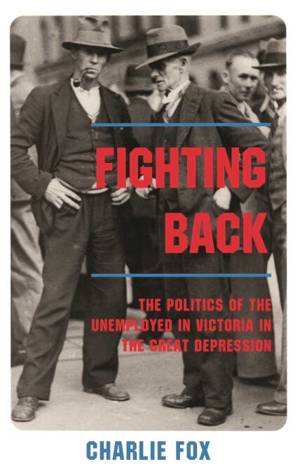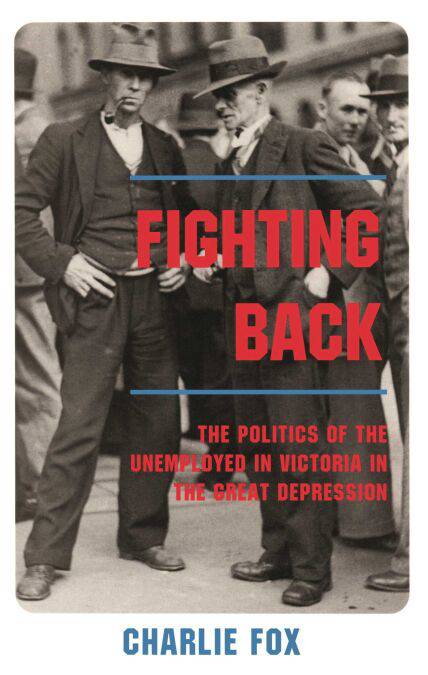
- Afhalen na 1 uur in een winkel met voorraad
- Gratis thuislevering in België vanaf € 30
- Ruim aanbod met 7 miljoen producten
- Afhalen na 1 uur in een winkel met voorraad
- Gratis thuislevering in België vanaf € 30
- Ruim aanbod met 7 miljoen producten
Zoeken
Fighting Back E-BOOK
The Politics of the Unemployed in Victoria in the Great Depression
Charlie Fox
E-book | Engels
€ 16,15
+ 16 punten
Uitvoering
Omschrijving
Work for the Dole is not a new idea. It was introduced in Victoria in 1932 and became one of the battlegrounds of unemployed politics. The provision and administration of sustenance, relief work, eviction of tenants from their homes, the issue of free speech—these were the major issues confronting unemployed workers and their families and organisations, and they fought successive governments over each one.
Written in a pleasingly clear and accessible style, this absorbing work shows how complex unemployed politics was, and situates it in the long history of agitation by unemployed workers.
It takes issue with the prevailing historical orthodoxy that unemployed workers in Australia during the Great Depression were introspective, politically apathetic and concerned only with survival. It shows that, to the contrary, they were active, organised and remarkably successful in their aims. It also shows that government unemployment relief was as much a product of this agitation as it was of government policies and preferences.
Yet the movement was always pulled in other direction; by the hunger and poverty of its members, by their need simply to survive, by the disengagement that accompanies individual powerlessness and by resignation in the face of such an incomprehensible disaster. That a creative, often extensive and vigorous unemployed movement could exist in such circumstances, in a decade of the worst poverty Australia has known, is surely a tribute to the courage and resistance of the men and women who made unemployed politics.
Fox's book takes a complex look at the actual politics of the unemployed in the Great Depression, a subject which, for various reasons. Hence it represents a substantial revision of the existing historiography.
Written in a pleasingly clear and accessible style, this absorbing work shows how complex unemployed politics was, and situates it in the long history of agitation by unemployed workers.
It takes issue with the prevailing historical orthodoxy that unemployed workers in Australia during the Great Depression were introspective, politically apathetic and concerned only with survival. It shows that, to the contrary, they were active, organised and remarkably successful in their aims. It also shows that government unemployment relief was as much a product of this agitation as it was of government policies and preferences.
Yet the movement was always pulled in other direction; by the hunger and poverty of its members, by their need simply to survive, by the disengagement that accompanies individual powerlessness and by resignation in the face of such an incomprehensible disaster. That a creative, often extensive and vigorous unemployed movement could exist in such circumstances, in a decade of the worst poverty Australia has known, is surely a tribute to the courage and resistance of the men and women who made unemployed politics.
Fox's book takes a complex look at the actual politics of the unemployed in the Great Depression, a subject which, for various reasons. Hence it represents a substantial revision of the existing historiography.
Specificaties
Betrokkenen
- Auteur(s):
- Uitgeverij:
Inhoud
- Aantal bladzijden:
- 296
- Taal:
- Engels
Eigenschappen
- Productcode (EAN):
- 9780522865301
- Verschijningsdatum:
- 2/06/2016
- Uitvoering:
- E-book
- Beveiligd met:
- Adobe DRM
- Formaat:
- ePub

Alleen bij Standaard Boekhandel
+ 16 punten op je klantenkaart van Standaard Boekhandel
Beoordelingen
We publiceren alleen reviews die voldoen aan de voorwaarden voor reviews. Bekijk onze voorwaarden voor reviews.











